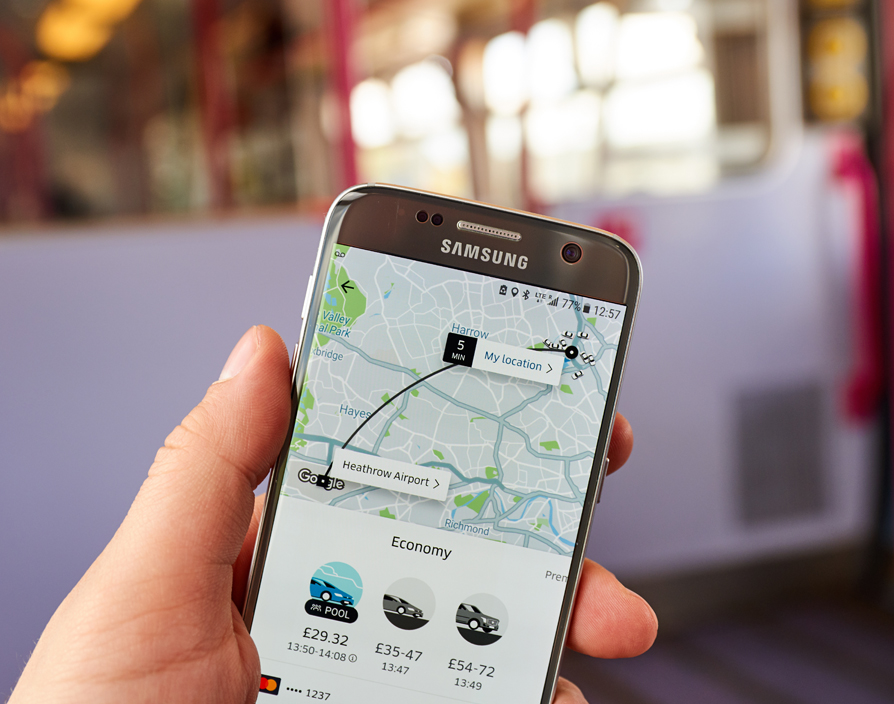TfL says Uber is “not fit and proper” to have a London licence
No matter how you look at it, it hasn’t been a great week for Uber. For starters, the last seven days saw the ride-hailing startup face a bribery probe about its dealings in Asia, adding to existing courtroom battles over how it pays riders and alleged intellectual theft. However, it didn’t stop there: on Friday Transport for London (TfL) decided to not to extend the company’s licence to operate in the British capital after it expires on September 30.
The transport authority said that Uber “is not fit and proper to hold a private hire operator licence” as the company’s approach and conduct “demonstrate a lack of corporate responsibility in relation to a number of issues which have potential public safety and security implications”. In particular, TfL was unsatisfied with how Uber reported serious criminal offences, how medical certificates were obtained, how it obtained Enhanced Disclosure and Barring Service checks and its use of Greyball, software that could be used to block regulatory bodies from gaining full access to the app.
In a statement, Uber responded that the decision shows the world that “far from being open, London is closed to innovative companies”. The startup now has 21 days to appeal the decision, which it has pledged to do, and can continue to operate as long as this process continues.
So while Uber has undoubtedly been dealt a severe blow, it may not be driven from Britain’s streets just yet.
Mark Zuckerberg outlines how Facebook will protect elections’ integrity
A few weeks ago Facebook revealed that Russians had bought over 3,000 ads in a bid to influence the 2016 US presidential election. And it seems as if Mark Zuckerberg is determined ensure that the integrity of democratic processes won’t be compromised in a similar way in the future. “I don’t want anyone to use our tools to undermine democracy,” he said during a live broadcast outlining Facebook’s plan to protect future elections.
For starters, the social-media giant will keep working closely with the government to find out exactly how Russians interfered with the election and will expand its partnerships with election commissions around the world. Similarly, the tech behemoth will also increase sharing of threat information with other tech and security companies.
Furthermore, Zuckerberg said that Facebook will “make political advertising more transparent” and enable users to more easily see who paid for an ad and what other ads they may be running on Facebook. Additionally, he pledged to strengthen Facebook’s ad review process for political ads and existing services, like its anti-bullying systems, to protect against political harassment.
He ended the broadcast saying that Facebook is now focused on the German election this week, having already taken “actions against thousands of fake accounts”. Clearly, the Zuck is taking this very seriously.
UK fintech startup GoCardless raises $22.5m in series D
London has long established its reputation for being a leader in fintech innovation. And this week GoCardless, the direct-debit provider, added another feather to capital’s cap by raising an impressive $22.5m series D round.
The new round was entirely based on existing investors believing in GoCardless’s solution for making recurring payments across borders easier. It was spearheaded by Accel Partners, the VC firm, but also included investors from Balderton Capital, Notion Capital and Passion Capital.
Commenting on the new influx of capital, Hiroki Takeuchi, founder and CEO of GoCardless, said: “We will use this new round of funding to accelerate our creation of the first global bank-to-bank payments network.”
And with rounds like these, London’s fintech crown is likely to maintain its lustre for years to come.
Deliveroo’s sales and losses grew significantly in the last year
The last year has been quite a ride for Deliveroo, the food-delivery startup. Not only did it grow significantly to the point where it now delivers meals in 140 cities across 12 countries but it has also faced legal challenges and increased government pressure about the employment status of its riders. And the company’s complex situation was reflected in the results filed at Companies House this week.
The results showed that Deliveroo’s revenues rose by 611% to £219m in 2016 thanks predominantly to the startup’s international expansion. At the same time, its losses grew significantly from £30.1m to £129.1m, which was attributed in part to the development of the company’s tech infrastructure and its growing workforce.
Clearly, the food-delivery startup is going full steam ahead. ![]()
Share via:


















































